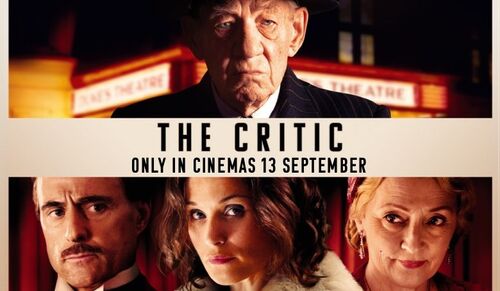
'Chemical Hearts' Review
 Even during a pandemic, when teens are doing online learning from home, there are still new high school “find yourself” films. Some are better than others, but I’m growing rather weary of this genre. What makes things even worse is when a script just doesn’t ring true.
Even during a pandemic, when teens are doing online learning from home, there are still new high school “find yourself” films. Some are better than others, but I’m growing rather weary of this genre. What makes things even worse is when a script just doesn’t ring true.
That’s the case for the majority of “Chemical Hearts”, which (no surprise) is based on a YA novel. The guy is Henry (played by Austin Abrams). The girl is Grace (“Riverdale”’s Lili Reinhart). They’re seniors. He’s a writer looking for some meaning in his life. She’s a transfer and is looking to start anew. They become co-editors of the school newspaper, so OF COURSE they’re gonna start spending a lot of time together.
Henry is shy, reserved and a little dorky. Grace is a little protective but has shown her wild side before through social media posts. Currently, she’s walking with a cane due to a mysterious injury. Henry tries to ask Grace about it but it’s difficult to get much out of her except overwritten philosophical theories about what it means to be a teenager. Henry’s got plenty of those too, so they’re a match made in “book to screen” heaven.
“Chemical Hearts” clocks-in at just over an hour and a half. It doesn’t take long for Henry and Grace to sorta “click”, but some relationship bumps-in-the-road appear just as quickly. What’s frustrating is that their dialogue comes straight out of the novel. Writer/director Richard Tanne doesn’t make it more believable for the screen. All conversations are incredibly drawn-out, with every character (including friends and parents) pausing extensively and dramatically multiple times within each sentence. People… don’t… talk… like… that!
Henry’s older sister is slightly atypical compared to typical young adult movie siblings, but she’s a minor character. It’s difficult to judge the chemistry between Reinhart and Abrams because Grace is so emotionally unstable — and Henry so oddly reactive to her emotions — that they don’t have a chance to really mesh. And when it comes to the details, interactions and emotional complexities of high school, “CH” gets about one thing right for every five things it gets wrong.
There is one “twist” that, while kinda creepy, does work. And it plays-into a reality that, sadly, involves many high school students each year. But, overall, “Chemical Hearts” exists in a fantasy/dreamland mixture of stagy scenes, force-fed one-liners, plot conveniences and an intentionally bittersweet conclusion.


